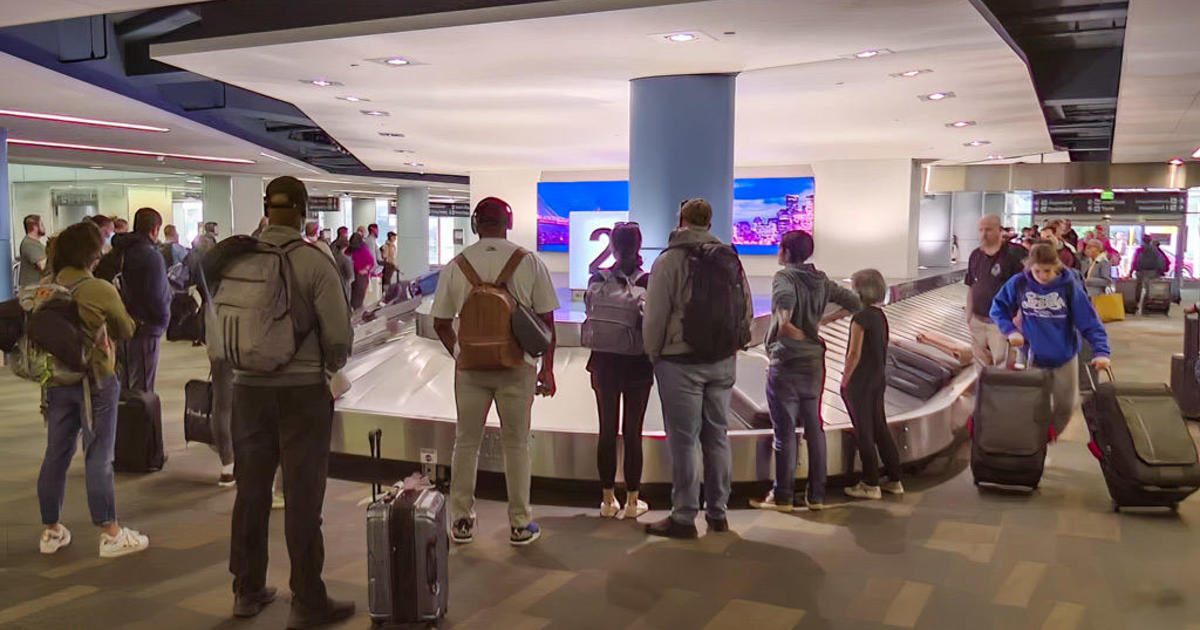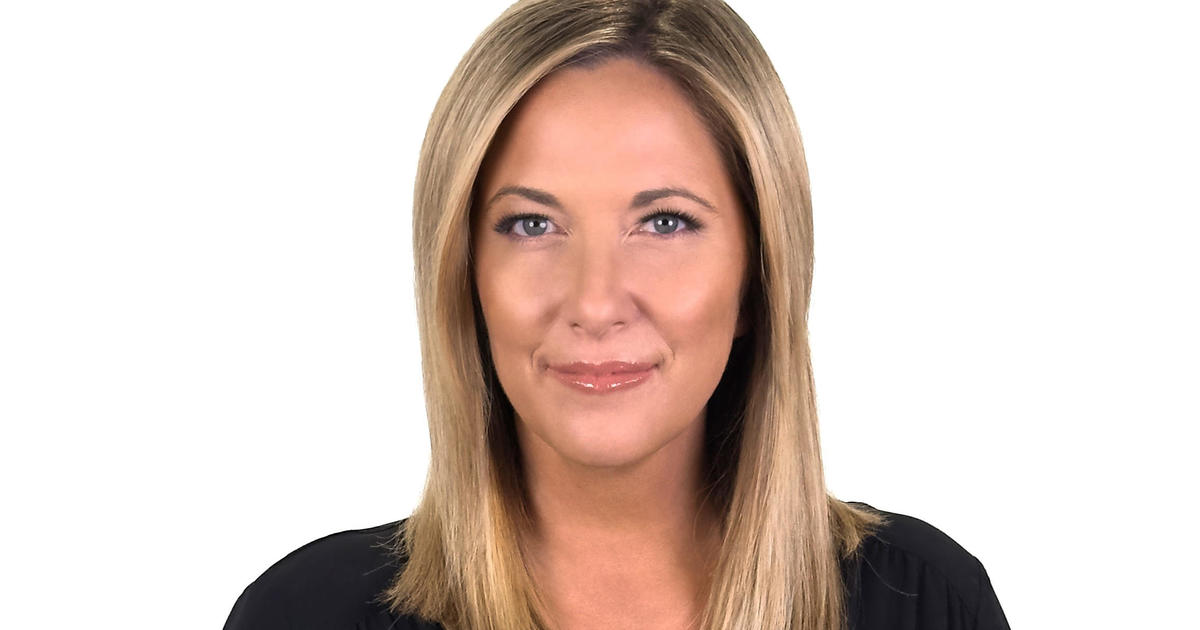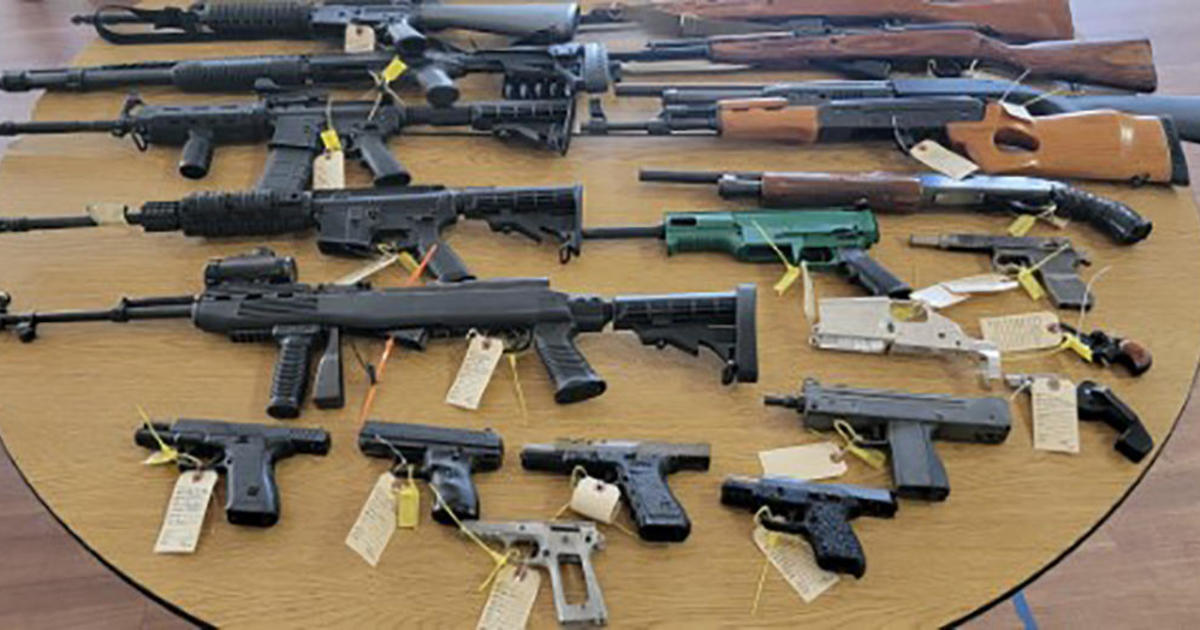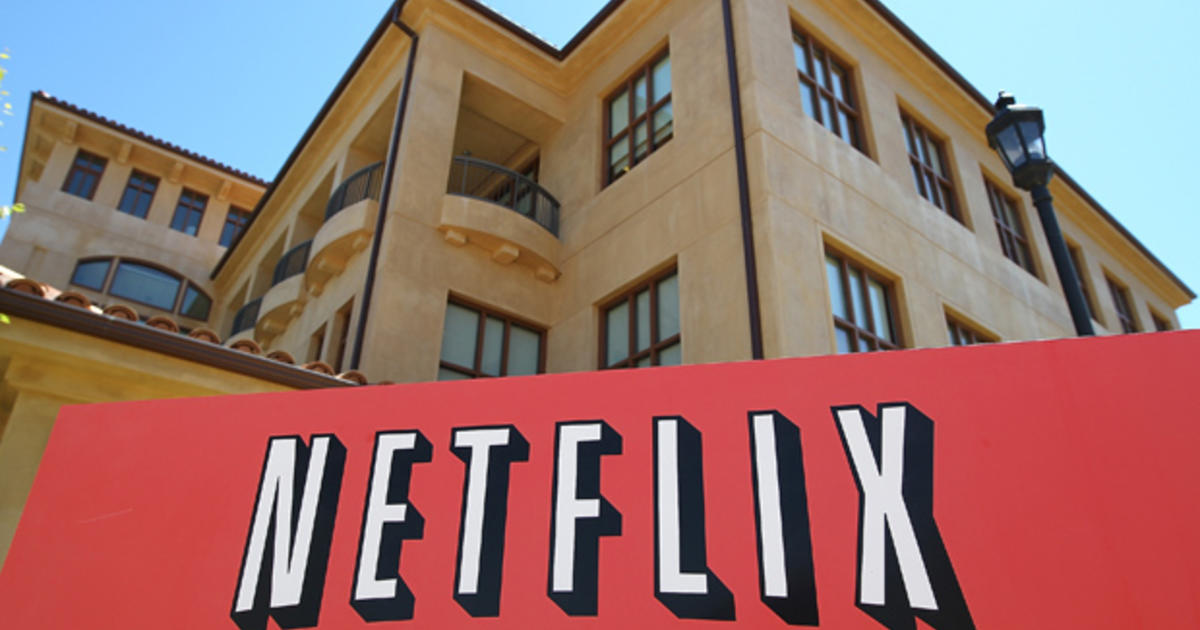COVID-19 Jump Swells California Lines For Tests; Shortages Loom
(CBS / AP) — Before Brian Haag returned to work styling hair at Los Angeles salon last month, he wanted to ensure his clients he was not infected with coronavirus, so he booked an appointment for a test and was able to breeze through a drive-thru site at Dodger Stadium in about 10 minutes.
This week, he struggled to get re-tested.
Even as California conducts a record number of COVID-19 tests, a resurgence in cases has driven more people to find out if they've been exposed, overwhelming test sites and creating fear among officials that supplies will run low and create a bottleneck in a system that has taken months to build up.
All test appointments in Los Angeles County have been booked throughout the week. Sacramento had to close testing clinics because a lab ran out of supplies. San Diego is adding thousands of tests to meet demand that has created 10-day waits for appointments. In Fresno County, patients are waiting up to a week for test results, frustrating officials seeking to quickly track down others who may have been infected.
Meanwhile in the Bay Area, long lines have been seen at the testing site at California State University, East Bay campus in Hayward. Earlier this week, the testing site had to close early, due to high demand.
Dr. Rais Vohra, interim health officer for the county, called the situation chaotic and delays unacceptable. "That's the reality that some labs are turning things around," said Vohra. "All of that is creating challenges for testing."
In mid-March, as Gov. Gavin Newsom ordered residents to stay home, the state struggled to build a robust testing program. It has gone from 2,000 tests a day in April to an average of 106,000 now, the most in the nation and exceeding the goals of a state task force.
State Health and Human Services Secretary Dr. Mark Ghaly urged labs on Saturday to prioritize test results for people with symptoms and those hospitalized, in nursing homes or institutions like prisons.
"As more states begin to scale their testing capabilities, new constraints are materializing within the supply chain," Ghaly said. "Simultaneously, laboratories are becoming overwhelmed with high numbers of specimens."
Dr. Bob Kocher, a professor at Stanford University and member of the state's testing task force, which was disbanded last week, said managing the spread of infections through social distancing, wearing masks and other measures is going to be key to keeping robust testing going.
"We currently have supply, the bigger question is how long will supplies last? The whole world is experiencing more COVID so we're going to have be more careful," Kocher said. "If infections go up much faster then we will have more testing and scarcity of supply."
San Diego County Director of Health and Human Services Nick Macchione said wait times are around five to seven days for a test and longer in some areas. By the end of next week, San Diego plans to offer an additional 2,000 tests to meet demand. It also is changing to only booking appointments a week in advance because it had too many no-shows.
A shortage of testing supplies needed to run high-speed diagnostic lab machines at the University of California, Davis, resulted in shutting down five Sacramento testing clinics, as well as other locations, said Pamela Wu, a spokeswoman for UC Davis Health.
As recently as a week or two ago, thousands of testing slots In Los Angeles weren't being booked, said Dr. Christina Ghaly, the county's director of health services. But after reduced testing availability over the July 4th weekend and a desire by people to find out if they are infected, sites are packed.
"It's very likely that in the days and weeks to come, testing access will continue to be insufficient to meet the demands," Ghaly said.
While Los Angeles Mayor Eric Garcetti once urged everyone — regardless of whether they had symptoms — to get a test, Ghaly urged most people without symptoms to not seek a test. She said those who should seek tests should have symptoms, or live or work in high-risk group settings like nursing homes or prisons, or have had exposure to someone who has tested positive.
Haag, the hairdresser, said he was trying to get a test once a week because he sees up to eight clients a day. The salon where he works spent thousands of dollars to reopen to get up to code. They removed three chairs to create more distancing, bought masks, cleaning supplies and thermometers to take clients' temperatures.
"We've done everything we had to do to open up," Haag said. "At least give us the option to get tested."
Haag said he tried four times a day since Saturday to book an appointment without luck until he got a tip from a nurse who goes to his gym that new appointments had been added. He quickly went online and scored a slot Thursday morning.
"It's pretty frustrating," he said about having to find out by chance on social media. "I probably would have missed the window if she hadn't posted that."
© Copyright 2020 CBS Broadcasting Inc. All Rights Reserved. The Associated Press contributed to this report.



